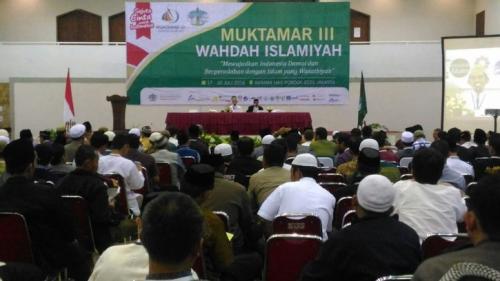Islam and Citizenship in Indonesia

Islam and Citizenship in Indonesia
In the wake of the fall of Suharto and the sudden cessation of the all-encompassing ethics that the New Order imposed upon Indonesian citizens, Chris Chaplin describes religious institutions that have replaced this moral force in an article for Inside Indonesia. Appealing to the transnational connection of the Nahdlatul Ulama and the Muhammadiyah, groups like Wahdah Islamiyah work to directly influence the moral scape of young Indonesians, sometimes working directly with the government. In an era where conceptualizations of Indonesian identity are shifting, the malleability of citizenship provides a direct avenue for conservative groups like Wahdah Islamiyah to access a broad range of communities. In the context of rapid modernization and the radical alteration of the Indonesian constitution in favor of democratic and free market policies, it is not surprising to me that religious conservatism is gaining strongholds in communities where people feel threatened by a changing morality. Wahdah Islamiyah and its counterparts are filling the void left behind by the New Order which played a very active role in the lives of individuals, an absence of which likely left many feeling unsupported. As Chaplin mentions, this move towards religious traditionalism is paired with an expansion of the democratic capacity of the country as a whole, a dynamic which warrants much further discussion.